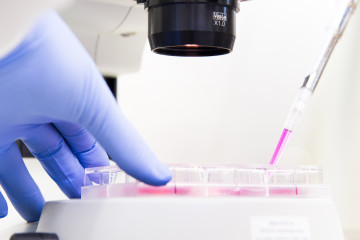Project grant
Human organoid model to generate mucosal immune cell populations

At a glance
In progress
Award date
February 2023 - December 2025
Grant amount
£195,610
Principal investigator
Dr Joana Neves
Institute
King's College London
R
- Replacement
Read the abstract
View the grant profile on GtR
